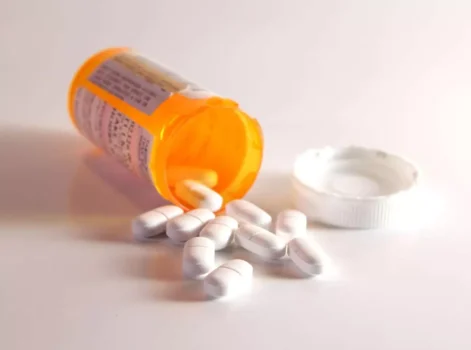
These types of studies have greatly helped to answer questions about how particular genes, developmental processes, and environmental factors, such as stressors, affect substance-taking behavior. Education about the neurobiology of addiction can highlight the potential for recovery and the effectiveness of evidence-based treatments. Customizing treatment approaches using individual neurobiology holds great promise for improving the effectiveness of addiction treatment. A future where clinicians can provide more personalized, effective, and compassionate care for individuals with addictive disorders draws closer. Integrating these innovative approaches into clinical practice can transform addiction treatment and offer new hope to those with substance use disorders.
- This phenomenon is common with many prescription medications and substances according to Merck manual research on Tolerance and Resistance To Drugs by Shalini S. Lynch, in 2022.
- By understanding these stages of addiction, loved ones can better identify signs of addiction and stop the cycle.
- Addiction’s manifestation is not uniform; it varies significantly among individuals.
- These brain adaptations often lead to the person becoming less and less able to derive pleasure from other things they once enjoyed, like food, sex, or social activities.
What happens to the brain when a person takes drugs?
Continued research is necessary to more thoroughly explain how substance use affects the brain at the molecular, cellular, and circuit levels. Such research has the potential to identify common neurobiological mechanisms underlying substance use disorders, as well as other related mental disorders. This research is expected to reveal new neurobiological targets, leading to new medications and non-pharmacological treatments—such as transcranial magnetic stimulation or vaccines—for the treatment of substance use disorders. A better understanding of the neurobiological mechanisms underlying substance use disorders could also help to inform behavioral interventions.
Study Links Handedness to Severity of Mental Health Symptoms
- If you believe you or someone you love may be struggling with addiction, let us hear your story and help you determine a path to treatment.
- Here, we outline a framework for understanding alcohol-induced changes in the brain, which can help you appreciate the challenges faced by many patients with AUD when they try to cut back or quit drinking.
- Drug cravings can occur at various times and are often triggered by specific environmental cues, emotional states, or physical conditions.
- In my experience, the biggest single predictor of whether someone will overcome their addiction is if they act on, and keep acting on, their commitment to be addiction-free.
Psychosocial counseling, addiction education, and a variety of therapies, counseling, relapse prevention and aftercare plans empower the patient with the tools to stay on the road to recovery. The stages of the cycle of addiction can be matched up with some of the stages of the model of behavior change and its relationship to recovery. Eventually, from internal turmoil and conflict or through outside interventions, a person can try to stop the addiction cycle and enter a healthier lifestyle called recovery. It may take months, years or decades before this process leads one to the path of recovery.
Stage 1: Binge and Intoxication

Chronic ethanol and withdrawal also blunted the effects of cannabinoid 1 receptor agonism on up-state amplitude and inhibitory currents in PFC neurons. These data suggest that chronic ethanol and withdrawal compromises the control of PFC activity by the cannabinoid system. The cannabinoid system was also the focus of Palomino et al. (2014), who examined https://ecosoberhouse.com/ the impact of acute and repeated cocaine exposure on endocannabinoid (eCB) and glutamate signaling in the mouse cerebellum. Their findings indicate that acute cocaine modulates the expression of the eCB and glutamate systems. Repeated cocaine results in normalization of glutamate receptor expression, although sustained changes in eCB are observed.

By recognizing warning signs and addressing underlying causes of relapse, individuals can fortify their defenses against the challenges of addiction. The final stage of the addiction cycle is relapse, often occurring as the withdrawal symptoms become too overwhelming for the individual. In this phase, the person struggling with addiction and dependence once again seeks out the substance of choice to reclaim what they feel is a normal emotional and physical state. As with any attempt to stop substance misuse and abuse, there are withdrawal symptoms. At the withdrawal stage of the cycle of addiction, a person can expect to face symptoms such as fatigue, anxiety, irritability, nausea, tremors, or even seizures in some cases. Ultimately, the withdrawal symptoms will vary depending on the particular drug of choice, the severity of the addiction, and the individual.


Data from the Substance Abuse and Mental Health Services Administration (SAMHSA) indicates that in 2019, approximately 139.8 million Americans aged 12 or older were current alcohol users, with many beginning through experimental use (SAMHSA, 2020). Individuals at the earlier stages of addiction likely will not need the same intensity of treatment that those in later stages will need. If you or someone you know shows these signs of addiction or has tried and failed to quit using drugs or alcohol, there is still hope. The stages of the addiction cycle are based on research from the Substance Abuse and Mental Health Services Administration (SAMSHA), which identified the areas of the brain where these stages occur. It can damage personal relationships, lead to financial difficulties and cause legal problems.
- The addiction cycle is a complex process that typically unfolds in several stages, each characterized by specific patterns of behavior and psychological changes.
- Precontemplation is the first stage in the stages of change model of addiction and behavior change.
- The preparation stage of the stages of change (transtheoretical) model means a person has moved forward to planning and preparing for carrying out changes they learned about in the contemplation stage.
- To truly understand addiction, we need to peek under the hood and examine what’s happening in the brain.
Research Assessment Requirements for Different Mental Health Careers
Each stage presents unique challenges and requires tailored strategies for recovery. Recognizing the signs early can lead to more successful outcomes and help individuals avoid the severe consequences of advanced addiction. Results from NIDA-funded research have shown that prevention programs involving families, schools, communities, and the media are effective for preventing or reducing drug use and addiction. Although personal events and cultural factors affect drug use trends, when young people view drug use as harmful, they tend to decrease their drug taking. Therefore, education and outreach are key in helping people understand the possible risks of drug use.
How Does Addiction Develop in the Brain?
Copyright © 2024, AddictionHelp.com The information provided by AddictionHelp.com is not a substitute for professional medical advice. View our editorial content guidelines to learn how we create helpful content with integrity and compassion. Our free email newsletter offers guidance from top addiction specialists, inspiring sobriety stories, and practical recovery tips to help you or a loved one keep coming back and staying sober. If you or someone you care about may have an addiction, talk to your provider right away. A dopamine hit brings about pleasure and is then quickly followed by pain, or a come-down, in order to keep us motivated, says psychiatrist Dr. Anna Lembke. This CME/CE credit opportunity is jointly provided by the Postgraduate Institute for Medicine and NIAAA.
You deserve excellent care and a rewarding life in recovery.
Teachers, parents, and health care providers have crucial roles in educating young people and preventing drug use and addiction. The following sections provide more detail about each of the three stages—binge/intoxication, withdrawal/negative affect, and preoccupation/anticipation—and the neurobiological processes underlying them. Support groups, like Narcotics Anonymous, help people with drug addiction issues.

